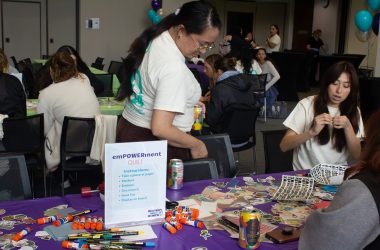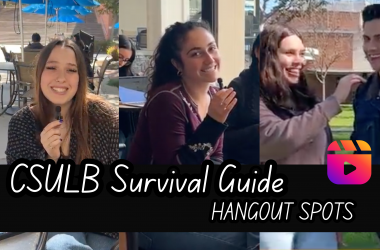From the podium at the front of the University Student Union Ballroom, journalism professor John Shrader announced: “Net neutrality may be the most important issue of [students’] lives.”
Moderating a panel discussion of net neutrality on Wednesday, Shrader began the discussion with a comedic video that demonstrated the complexity of the topic by showing a handful of people who could not explain it. The Department of Journalism and Mass Communication and USU Program Council hosted the discussion in order to provide students with a deeper understanding of net neutrality.
The forum came two weeks after the Federal Communication Commission voted 3-2 to pass net neutrality regulations that prohibit Internet providers from manipulating Internet traffic speeds.
At the time, Verizon called the decision misguided, regrettable and wholly unnecessary. AT&T said it was not “healthy for the Internet ecosystem.” Comcast expressed concern and disappointment. While the telecoms were crushed, broadband consumers rejoiced—four million whom had contacted the FCC in support of net neutrality.
“Nobody should be allowed to pay more for their content to travel faster,” assistant journalism professor and panelist Gwen Shaffer said.
She used the example of somebody who uses Comcast as his or her Internet service provider and also subscribes to Netflix. Under the new net neutrality rules, Comcast cannot slow down Netflix to the point where customers start switching over to Comcast’s own video streaming service, Xfinity.
Panelist Kathay Feng, the executive director of California Common Cause, said that students rely on the Internet to find jobs, take courses, communicate with their professors and many other things. For that reason net neutrality has the potential to greatly affect them, she said.
Under the new FCC regulations, providers are considered common carriers, and are under the same rules as telephone companies who must provide non-discriminatory service.
“The [telecommunication] industry was already self-governed by its own knowledge of anti-trust laws,” economics professor at Pepperdine University Dr. James Prieger said speaking via prerecorded video at the forum.
He said he believes the new net neutrality rules will only stunt innovation by removing financial incentive to companies who invest in broadband infrastructure.
Panelist Kathay Feng, the executive director of California Common Cause, said that the Internet should be treated as a public utility. Shaffer said that much of the infrastructure was built with the help of tax subsidies.
Panelist Arturo Carmona, the executive director at Presente.org, said that FCC’s decision is a critical civil rights issue.
“Net neutrality allows unrepresented communities and working-class communities, communities that are often ignored by the mainstream media, to have a means of communication,” Carmona said.
Since FCC’s passing of the regulations, telecommunications companies have already mobilized their lobbyists on Capital Hill in order to fight these new rules, Carmona said. In 2014, Comcast spent more on lobbying than Google and Koch Industries, which is some of the biggest corporations in the world according to opensecrets.com.
“You vote, Comcast doesn’t,” Feng said. “The scary, cynical thing is that [telecommunication companies] are counting on millennials not to vote. So if you don’t show up to vote, it is absolutely true that outside donations that come from Comcast and Verizon will make a difference.”



